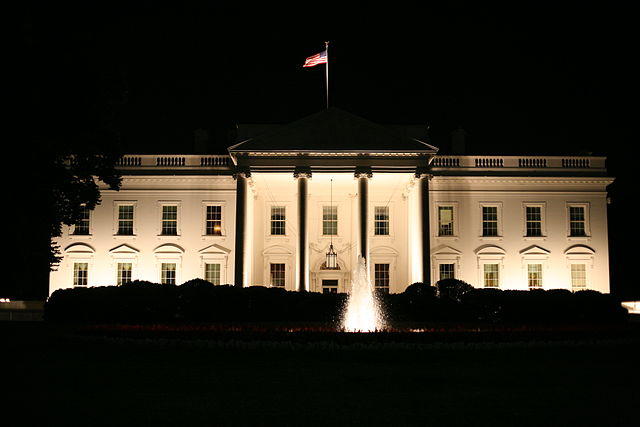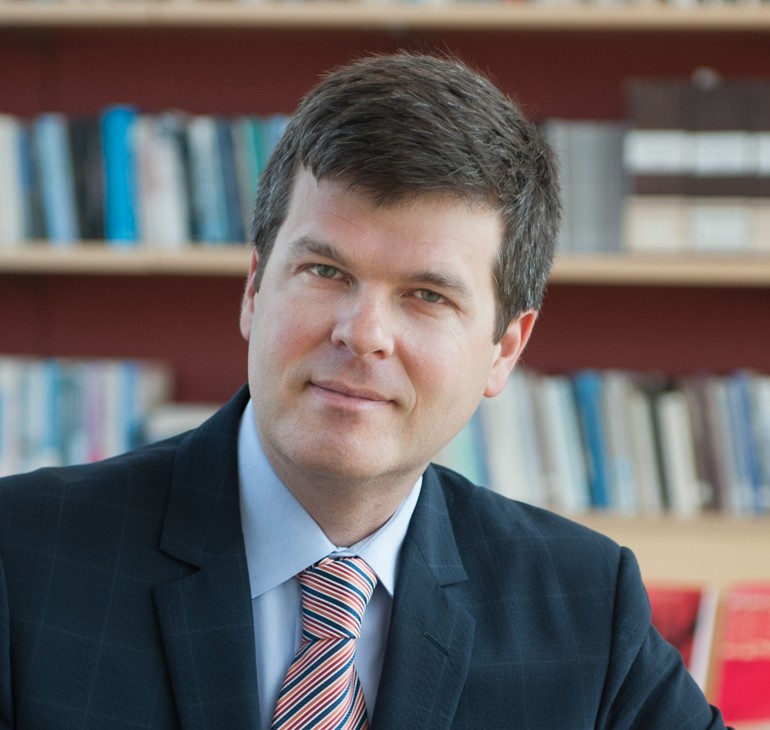Trump Can End the Russia Probe—But That Doesn’t Mean He Can Obstruct It
Special Counsel Robert Mueller is wrapping up an important phase in his investigation. Even as he brings new charges in the case against President Trump’s former campaign manager Paul Manafort, Mueller is coming to conclusions about Trump himself. According to the Washington Post, Mueller plans to document his findings in two reports: one on possible collusion with Russia’s interference in the 2016 election and one possible obstruction of justice in the course of the Russia investigation.

Published by The Lawfare Institute
in Cooperation With

Special Counsel Robert Mueller is wrapping up an important phase in his investigation. Even as he brings new charges in the case against President Trump’s former campaign manager Paul Manafort, Mueller is coming to conclusions about Trump himself. According to the Washington Post, Mueller plans to document his findings in two reports: one on possible collusion with Russia’s interference in the 2016 election and one possible obstruction of justice in the course of the Russia investigation.
The most important unresolved question that is apparently delaying the first of those reports—at least as far as the public is aware—is Mueller’s pending request that Trump testify under oath. Such a request is typically the last step in a grand jury investigation of a criminal suspect, permitting a prosecutor to “lock in” the suspect’s story. In this case, the Post reports that Mueller would like to conduct the interview before completing his report on obstruction. Whatever Mueller’s purpose, a demand for testimony from a sitting president presents novel legal issues. While President Bill Clinton agreed voluntarily to answer questions before Independent Counsel Kenneth Starr’s grand jury, no president in history has ever been compelled to testify.
In a January memo to the special counsel, Trump’s lawyers made the case that the president cannot be forced to give testimony. They argue that because Trump’s decisions with respect to the Russia probe stem from his powers as president, they cannot “constitutionally nor legally constitute obstruction because that would amount to him obstructing himself.” La justice, c’est moi.
As Trump’s lawyers note, the president “could, if he wished, terminate the inquiry, or even exercise his power to pardon if he so desired.” Their argument is that the greater power to end the Russia probe—possibly through pardons—includes the lesser power to take actions that have the effect of impeding it. The “greater power includes the lesser” is a classic constitutional argument, but it is so often wrong it should probably be considered a fallacy. It turns out that the supposedly “lesser power” often is not lesser at all, only different—and unconstitutional.
Congress has the “greater power” to delegate hardship decisions on deportation to the executive branch, but it does not have the “lesser power” of delegating those decisions subject to a one-house veto. While the government has the “greater power” to ban all highly offensive speech that might provoke a violent reaction (so-called “fighting words,”) it does not have the “lesser power” of banning only highly offensive speech that expresses particular ideas—even racist ones.
Impeding an investigation merely slows it down, while pardons might end it altogether. Nevertheless, obstruction of justice is not the lesser of these two “powers.” Successful obstruction offers advantages that ending an investigation does not. Ending an investigation through pardons puts the question of presidential abuse of power squarely before the public— while evading justice through lies, concealment and misdirection avoids political accountability. While the Constitution gives Trump the power to make the Russia probe go away, it does not give him the power to do so without consequence.
Let’s imagine the most dramatic scenario. Trump fires Mueller, orders an end to any further investigation of Russian interference in the 2016 election by the FBI or any other agency, and issue pardons to everyone, including himself. He announces that he is doing so for the good of the nation—to prevent bias in a criminal proceeding, remove a source of partisan discord, and achieve the foreign policy goal of a better relationship with Russia.
For the right reasons, the president could do all of these things consistent with his power under Article II—with the possible exception of the self-pardon. Days before Richard Nixon’s resignation in 1974, the Justice Department tentatively opined that he could not pardon himself. The issue would be tested only if Trump were to face criminal charges after he left office.
Self-pardons aside, the problem for Trump is not that he lacks the power to end the Russia probe, but that he lacks the courage of his convictions. Perhaps he feels his political situation is too weak, and fears taking such drastic actions. Trump knows he has the power to pardon—but he also knows that Congress has the power of impeachment and removal.
Trump’s lawyers argue that the president’s motives do not matter. They are wrong, at least as far as impeachment is concerned. As president, Nixon had wide latitude in running the CIA and the FBI. But when Nixon asked the CIA to try to stop the FBI from investigating the break-in of the Democratic National Committee, it was his corrupt motive that made his actions grounds for impeachment. The president’s base might believe Trump to have valid reasons for issuing pardons, but Congress would be free to draw the common sense conclusion that he had acted out of corrupt motives: to cover up crime, reward cronies, or ward off blackmail—in short, that he had abused his power.
But so far, the president has chosen not to risk impeachment. Rather than weather the political firestorm—and risk of impeachment—that would come if he fired Mueller, Trump prefers that the special counsel exonerate him. Failing that, Trump hopes to discredit any accusation of serious wrongdoing—either through an impeachment referral or (less likely) a criminal indictment—by arguing that the whole investigation is a partisan “witch hunt” that has dragged on too long.
Trump has every right to choose this strategy. He does not have the right to avoid the consequences of doing so. He is not without legal recourse. The president is, of course, entitled to assert well-established privilege: He can invoke the executive privilege that is now a well-established part of the his constitutional powers and the Fifth Amendment privilege that protects all of us. A judge would have to rule on such claims.
Instead of issuing pardons, firing Mueller and shutting down the Russia probe, Trump distracts us with arguments about what might happen if he had the courage to use the powers he actually has. These are the actions of a president who fears the checks and balances that are part of our constitutional design—a free press, an independent judiciary, and a Congress with the power to remove him from office.


.jpg?sfvrsn=8253205e_5)

